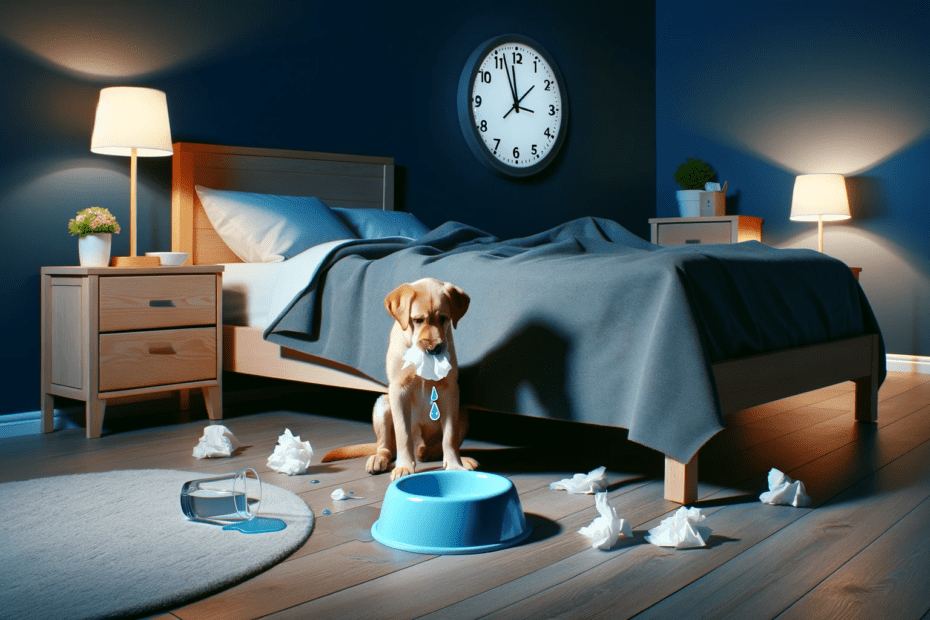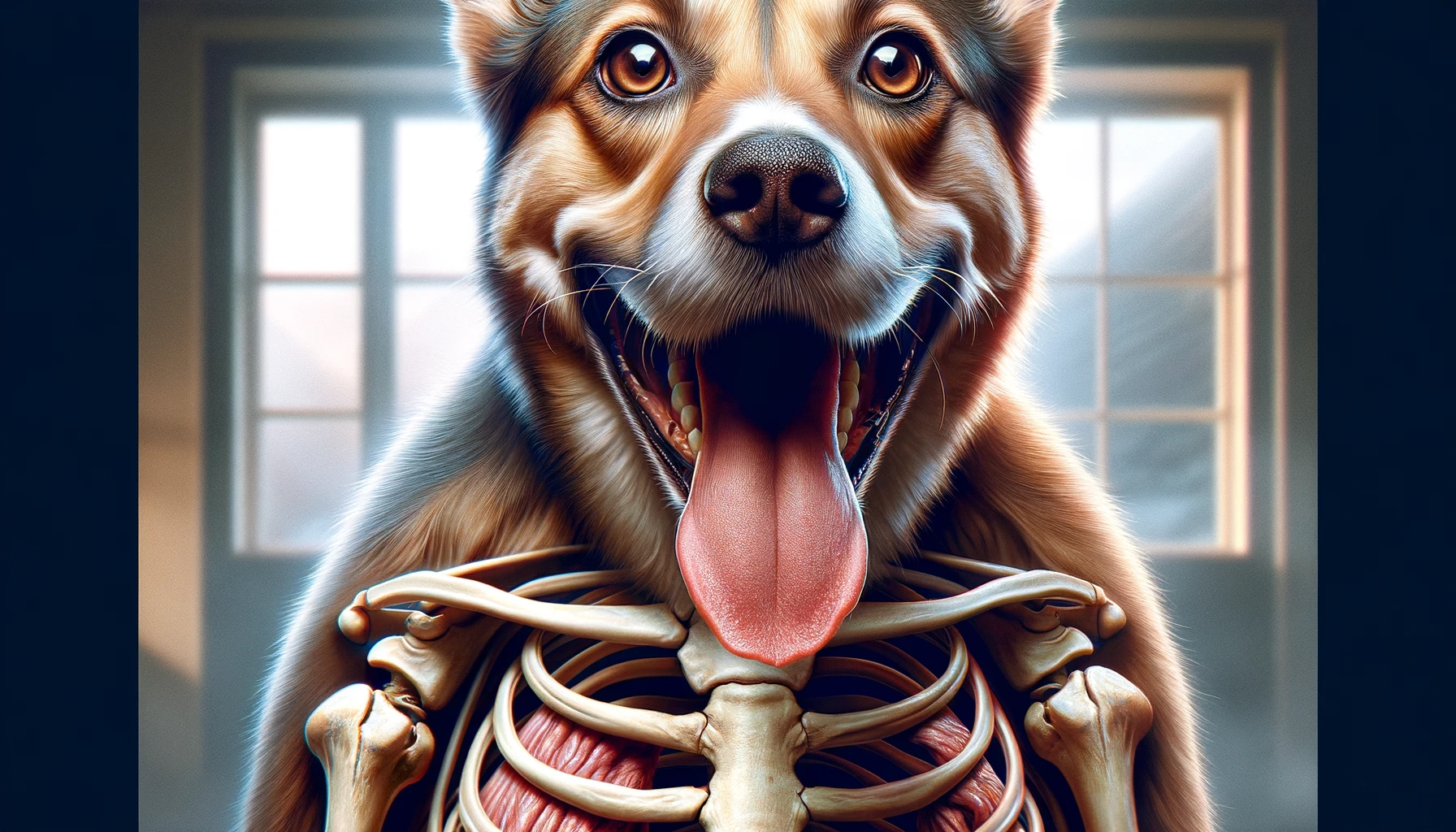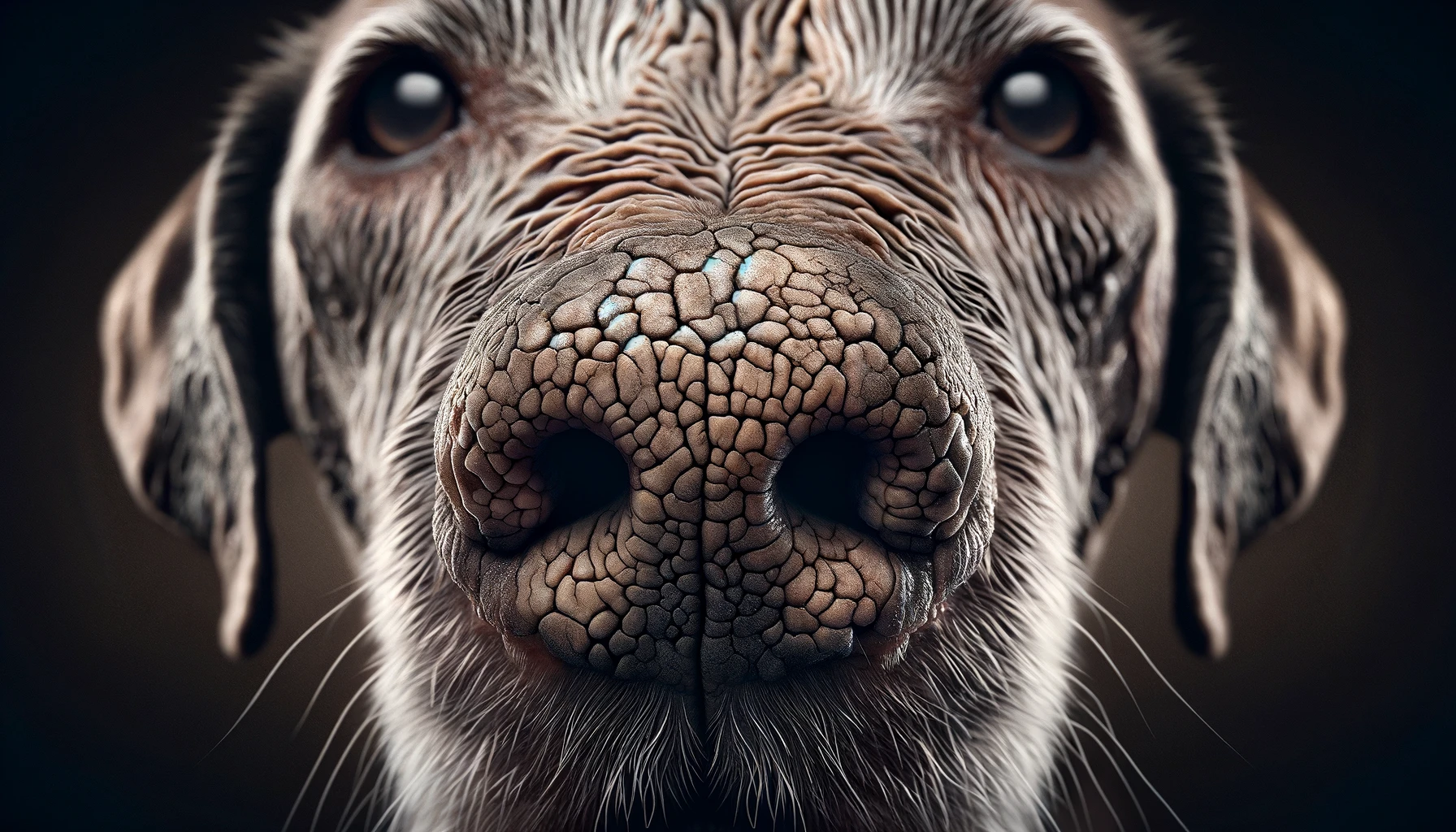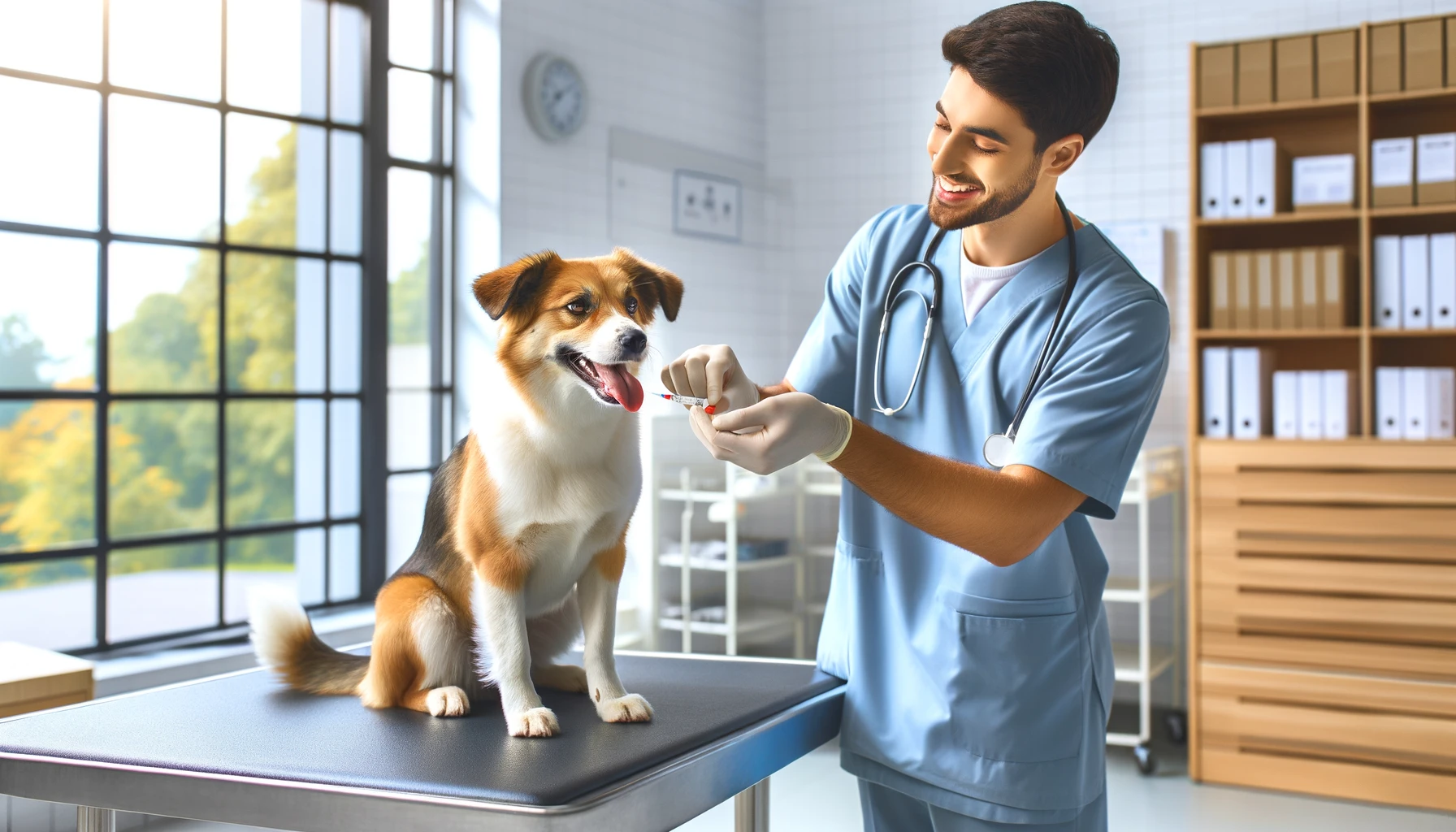In this article, we will explore the potential reasons why dogs may experience diarrhea specifically at night. Understanding the underlying causes of this digestive issue is crucial for pet owners, as it can help identify and address the root problem.
From dietary triggers to stress factors, various factors can contribute to nocturnal diarrhea in dogs. By shedding light on these potential causes, we aim to provide pet owners with the knowledge and tools necessary for effective prevention and treatment.
Key Takeaways
- Dietary triggers, such as certain foods or ingredients, can cause nighttime diarrhea in dogs.
- Stress and anxiety can contribute to nighttime diarrhea in dogs, with environmental triggers and behavioral signs being common factors.
- Lack of exercise and physical activity can contribute to nighttime diarrhea in dogs, as regular exercise stimulates the digestive system and helps regulate metabolism.
- Medication-induced diarrhea and side effects can also cause nighttime diarrhea in dogs, requiring adjustment of medication dosage or switching to a different medication.
Potential Dietary Triggers
Potential dietary triggers for nighttime diarrhea in dogs can include certain foods or ingredients that may not agree with their digestive system. Dogs, like humans, can have sensitivities or allergies to certain foods. If your dog experiences diarrhea at night, it may be worth considering any recent dietary changes. Abrupt changes in their regular diet can disrupt their digestive system and lead to diarrhea. Additionally, some dogs may have trouble digesting certain ingredients, such as grains or dairy products.
Probiotic supplements can also play a role in managing nighttime diarrhea in dogs. Probiotics are beneficial bacteria that can help promote a healthy gut microbiome. By adding probiotic supplements to your dog’s diet, you may be able to restore the balance of good bacteria in their digestive system, reducing the occurrence of diarrhea. However, it is important to consult with your veterinarian before introducing any new supplements to your dog’s diet.
Understanding the potential dietary triggers for nighttime diarrhea in dogs is crucial in managing their digestive health. By being mindful of their diet and making any necessary adjustments, you can help alleviate their symptoms and ensure their overall well-being.
Stress and Anxiety Factors
When it comes to understanding why dogs may experience diarrhea at night, stress and anxiety factors can play a significant role. Environmental triggers, such as changes in routine or unfamiliar surroundings, can cause stress in dogs and lead to digestive issues.
Recognizing behavioral signs of anxiety, such as pacing or excessive panting, can help pet owners address the underlying causes and implement remedies for calming their dogs, such as creating a soothing environment or using natural supplements.
Environmental Triggers for Stress
What are the environmental triggers for stress in dogs, specifically in relation to causing diarrhea at night?
Dogs, like humans, can experience stress and anxiety in various situations. Environmental triggers for stress in dogs can include loud noises, changes in routine, unfamiliar environments, or the presence of other animals. These triggers can cause dogs to feel anxious, leading to physiological responses such as diarrhea.
Stress can affect the digestive system, causing increased motility and changes in gut bacteria, resulting in loose stools or diarrhea. It is important to note that stress-induced diarrhea can also be influenced by potential dietary triggers, such as sudden changes in food or the consumption of new or unfamiliar foods.
Understanding and managing these environmental triggers for stress can help alleviate diarrhea symptoms in dogs, promoting their overall well-being.
Behavioral Signs of Anxiety
As a result of environmental triggers for stress, dogs may exhibit various behavioral signs of anxiety, which can contribute to the occurrence of diarrhea at night.
One common manifestation of anxiety in dogs is separation anxiety symptoms. Dogs with separation anxiety may become excessively clingy, destructive, or engage in excessive vocalization when left alone.
They may also exhibit signs of fear and phobia, such as trembling, pacing, or trying to escape. These behavioral signs of anxiety are often accompanied by physiological changes, such as increased heart rate and panting.
It is important for dog owners to be aware of these signs and provide appropriate support and training to help alleviate their dog’s anxiety. Understanding and addressing the underlying anxiety can help mitigate the occurrence of nighttime diarrhea in dogs.
Remedies for Calming Dogs
One effective approach to addressing the stress and anxiety factors that contribute to nighttime diarrhea in dogs is through the use of calming remedies. Dogs can experience stress and anxiety for various reasons, such as separation anxiety, loud noises, or changes in their environment.
Calming techniques can help alleviate these symptoms and promote a sense of relaxation in dogs. Natural remedies can include the use of pheromone diffusers or sprays, which release calming scents that mimic the natural pheromones produced by mother dogs to comfort their puppies. Another option is the use of herbal supplements that contain ingredients like chamomile or valerian root, known for their calming properties.
It’s important to consult with a veterinarian before using any natural remedies to ensure they are safe and appropriate for your dog.
Lack of Exercise and Physical Activity
A lack of exercise and physical activity can contribute to the occurrence of nighttime diarrhea in dogs. Regular exercise is not only important for maintaining a healthy weight, but it also benefits a dog’s overall well-being. Engaging in physical activity helps stimulate the digestive system, promoting healthy bowel movements. When dogs do not get enough exercise, their digestive system may become sluggish, leading to irregular bowel movements and potentially diarrhea.
Routine exercise is essential for dogs of all ages and breeds. It helps to regulate metabolism, improve digestion, and reduce the risk of gastrointestinal issues. Regular exercise also helps to relieve stress and anxiety in dogs, which can be a common cause of diarrhea. By incorporating a consistent exercise routine into a dog’s daily life, pet owners can support their furry friends’ digestive health and minimize the occurrence of nighttime diarrhea.
It is important to note that excessive exercise can also be a trigger for diarrhea in dogs. Therefore, it is crucial to find the right balance and engage in appropriate levels of physical activity based on a dog’s age, breed, and overall health condition. Consulting with a veterinarian and gradually increasing exercise intensity can help ensure a safe and healthy exercise routine for dogs.
Intestinal Parasites and Infections
Intestinal parasites and infections pose a significant risk to dogs experiencing nighttime diarrhea, potentially exacerbating their digestive issues. Intestinal infections, also known as enteritis, can be caused by various pathogens such as bacteria, viruses, or parasites. Common parasites that can infect dogs include roundworms, hookworms, whipworms, and giardia.
These parasites can enter a dog’s body through contaminated food, water, or contact with infected animals. Once inside the intestines, they can cause inflammation, damage the intestinal lining, and disrupt the normal absorption of nutrients. This can lead to diarrhea, vomiting, weight loss, and overall poor health.
Prompt diagnosis and treatment are crucial in managing intestinal infections in dogs. Veterinary professionals often perform fecal examinations to identify the specific parasite or pathogen causing the problem. Treatment options may include deworming medications, antibiotics, or antiparasitic drugs, depending on the type of infection and the severity of symptoms.
Prevention is equally important in reducing the risk of intestinal infections. This involves practicing good hygiene, such as washing hands before and after handling dogs, regularly cleaning and disinfecting their living areas, and providing them with clean, fresh water and a balanced diet. Regular veterinary check-ups and administering preventive medications can also help protect dogs from intestinal parasites and infections.
Food Allergies and Intolerances
Why do food allergies and intolerances contribute to my dog’s nighttime diarrhea?
Food allergies and intolerances in dogs can lead to digestive issues, including diarrhea. When a dog consumes a food that they are allergic or intolerant to, it can trigger an immune response or an adverse reaction in their digestive system. This can result in symptoms such as diarrhea, vomiting, and abdominal discomfort.
Identifying food sensitivities in dogs can be challenging as the symptoms can vary and may not always be immediately apparent. However, common food allergens in dogs include proteins such as beef, chicken, and dairy products, as well as grains like wheat and corn. To pinpoint the specific food causing the sensitivity, an elimination diet may be necessary. This involves removing potential allergenic ingredients from the dog’s diet and reintroducing them one by one to observe any adverse reactions.
Once the offending ingredients are identified, potential treatment options for food allergies and intolerances include switching to a hypoallergenic or limited ingredient diet. These diets are formulated with novel protein and carbohydrate sources that are less likely to trigger an allergic response. In some cases, medications such as antihistamines or corticosteroids may also be prescribed to manage symptoms.
Side Effects of Medications
Medications are often prescribed to dogs to treat various health conditions, but they can also have side effects. One common side effect is medication-induced diarrhea, which can occur due to the medication’s impact on the digestive system.
Managing medication side effects is important to ensure the overall well-being of your dog. This may involve adjusting the medication dosage, switching to a different medication, or using additional supportive treatments.
Taking proactive steps to prevent or minimize medication-induced diarrhea can help keep your dog comfortable and healthy. It’s important to discuss any concerns or observed side effects with your veterinarian, as they can provide guidance and recommend the best course of action.
Medication-Induced Diarrhea Causes
One possible cause of diarrhea in dogs at night is the side effects of certain medications they may be taking. Medication-induced diarrhea occurs when a dog’s body reacts negatively to the medications they are prescribed. This can be a result of the medication irritating the digestive system or causing changes in the gut flora.
Common medications that may cause diarrhea in dogs include antibiotics, nonsteroidal anti-inflammatory drugs (NSAIDs), and certain chemotherapy drugs. If your dog experiences diarrhea as a side effect of medication, it is important to consult with your veterinarian. They may recommend adjusting the dosage or switching to an alternative medication.
Additionally, dietary precautions such as providing a bland diet can help alleviate the symptoms. In some cases, alternative treatments such as probiotics may also be beneficial in restoring the balance of gut bacteria.
Managing Medication Side Effects
Managing medication side effects in dogs can be crucial for their overall health and well-being. While medications are often necessary for treating various illnesses and conditions, they can also lead to unwanted side effects, such as diarrhea.
Diarrhea is a common side effect of many medications, including antibiotics, nonsteroidal anti-inflammatory drugs (NSAIDs), and certain chemotherapy drugs. To effectively manage medication-induced diarrhea in dogs, it is important to first identify the specific medication causing the side effect.
Once identified, your veterinarian may recommend adjusting the dosage, switching to an alternative medication, or prescribing additional medications to alleviate the symptoms. It is also important to maintain a healthy diet and ensure proper hydration for your dog.
Regular communication with your veterinarian is essential to monitor and manage any medication side effects to ensure your dog’s overall well-being.
Underlying Medical Conditions
Underlying medical conditions can contribute to the occurrence of nighttime diarrhea in dogs. While dietary causes and medication side effects are common factors, it is essential to consider the possibility of an underlying medical condition when addressing this issue.
Several medical conditions can cause diarrhea in dogs, with some being more prevalent during the night. These conditions include inflammatory bowel disease, pancreatitis, gastrointestinal infections, food allergies, and intestinal parasites. Inflammatory bowel disease is characterized by chronic inflammation of the gastrointestinal tract, leading to diarrhea and other symptoms. Pancreatitis, an inflammation of the pancreas, can cause digestive disturbances, including diarrhea. Gastrointestinal infections, such as viral or bacterial infections, can also result in diarrhea. Food allergies can trigger an adverse reaction in the digestive system, leading to diarrhea. Lastly, intestinal parasites, such as worms, can cause gastrointestinal upset and diarrhea.
To effectively manage nighttime diarrhea caused by underlying medical conditions, proper diagnosis is crucial. A veterinarian will conduct a thorough examination, including blood tests, fecal analysis, and imaging studies, to identify the underlying cause. The treatment options will depend on the specific medical condition diagnosed. They may include dietary changes, medication, parasite control, and in some cases, surgery. The veterinarian will tailor the treatment plan to address the underlying condition and alleviate the nighttime diarrhea in dogs.
Frequently Asked Questions
Can I Give My Dog Over-The-Counter Medications to Treat Their Nighttime Diarrhea?
Over-the-counter medications for treating nighttime diarrhea in dogs may not always be the best approach.
It is important to consult with a veterinarian before administering any medication to your dog. They can provide guidance on the appropriate treatment, which may include prescription medications or alternative treatments.
Diarrhea can have various underlying causes, including dietary issues, infections, or underlying health conditions.
Identifying and addressing the root cause is crucial for effective management of your dog’s diarrhea.
How Long Does It Typically Take for a Dog’s Diarrhea to Improve With Dietary Changes?
The duration of dietary changes in improving a dog’s diarrhea can vary depending on the underlying cause and the individual dog’s response to the new diet. While some dogs may show improvement within a few days, others may take several weeks to see significant changes.
The effectiveness of dietary changes in managing diarrhea is generally high, as it helps to address any potential dietary triggers or sensitivities. However, it is important to consult with a veterinarian for proper diagnosis and guidance in implementing dietary changes.
Is It Normal for My Dog to Have Occasional Diarrhea, or Should I Be Concerned?
Occasional diarrhea in dogs can have various common causes, such as dietary indiscretion, stress, or a sudden change in diet.
However, it is important to assess the severity and frequency of the diarrhea to determine if veterinary care is necessary.
If the diarrhea is persistent, accompanied by other symptoms such as vomiting or lethargy, or if your dog is a young puppy or senior, it is advisable to consult a veterinarian for a proper diagnosis and appropriate treatment.
Can Stress or Anxiety Cause Diarrhea in Dogs Even if They Have a Healthy Diet?
Stress related diarrhea in dogs can indeed occur even if they have a healthy diet. Stress and anxiety can disrupt the normal functioning of the gastrointestinal system, leading to diarrhea.
It is important to address the underlying causes of stress and anxiety in dogs to alleviate this symptom.
Additionally, incorporating probiotics into their diet may help manage canine diarrhea by promoting a healthy gut microbiome and improving digestive health.
Are There Any Home Remedies or Natural Remedies That Can Help Manage My Dog’s Nighttime Diarrhea?
There are several natural remedies that can help manage a dog’s nighttime diarrhea.
One option is to make dietary changes, such as feeding your dog a bland diet consisting of easily digestible foods like boiled chicken and rice.
Another option is to incorporate probiotics into your dog’s diet, which can help promote a healthy digestive system.
It’s important to consult with a veterinarian before trying any home remedies to ensure they are appropriate for your dog’s specific needs.
Conclusion
In conclusion, there are several potential causes for a dog experiencing diarrhea at night. These may include:
- Dietary triggers
- Stress and anxiety factors
- Lack of exercise
- Intestinal parasites and infections
- Food allergies and intolerances
- Side effects of medications
- Underlying medical conditions
It is important to consult a veterinarian to accurately diagnose and address the specific cause of the dog’s diarrhea.






